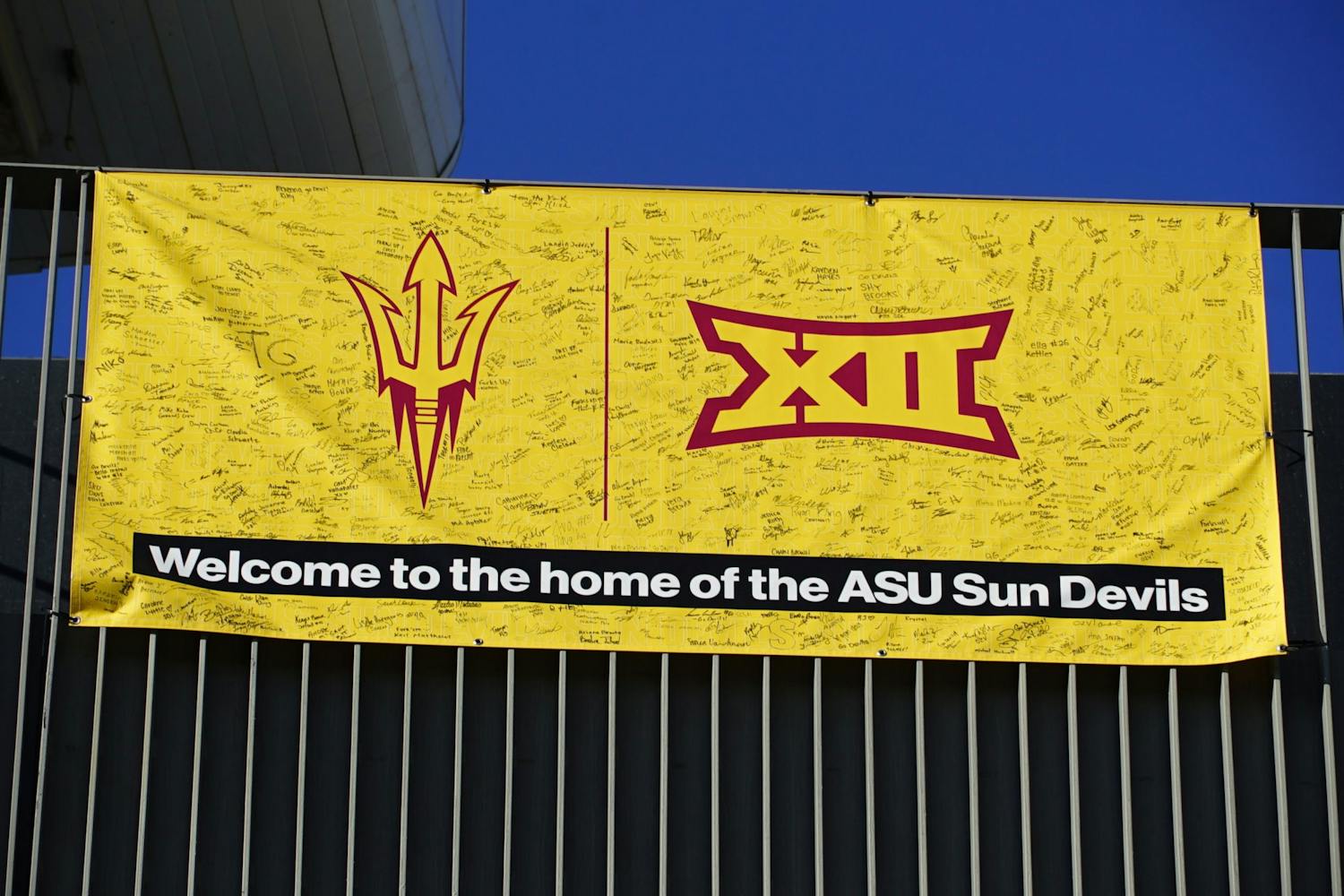Undergraduate Student Government Tempe passed a resolution on Tuesday calling on President Michael Crow to address recent anti-Semitic acts on campus and on the Council of Coalitions to establish a Jewish Cultural Coalition within one year.
The resolution also asks the University to adopt a new definition of anti-Semitism, used by the International Holocaust Remembrance Alliance, to address further hate speech targeting Jewish students on campus.
Seven ASU groups co-signed the new resolution condemning racism, bigotry and violence targeting students and the Jewish community on campus.
Cameron Decker, a senator for Barrett, The Honors College, said that while it was important for USGT to condemn anti-Semitism, it was only the first step.
"It's even more important that we're asking for the establishment of a Jewish coalition, something that will be the first institutional protection for the Jewish community on campus," said Decker, a sophomore majoring in business and civic and economic thought and leadership.
After a heated debate, USGT voted to approve Senate Resolution 5, despite some senators voicing concerns about passing the resolution before having a formal meeting with the Council of Coalitions regarding the planning and implementation of a future Jewish coalition.
"I would hate to impose something upon the Council of Coalitions when their input hasn't even been considered," Daniel Lopez, a senator for the College of Liberal Arts and Sciences and senior studying political science and philosophy, said during a discussion on the resolution. "They heard about this yesterday."
Approved USGT resolutions amplify the voices of undergraduate students to the administration and are not binding in nature. Ultimately, the University has the final say in what measures the administration chooses to act on.
Coalitions are typically formed through the guidance of the University and not through other student-run coalitions, according to Nyomi Rosales, president of El Concilio and a senior double majoring in political science and justice studies.
Rosales, who spoke on behalf of the Council of Coalitions, suggested during the USGT meeting that the Senate should delay the resolution until senators could have a "bigger conversation" regarding an on-campus Jewish coalition.
"The main and important thing that was left out of yesterday's Senate meeting and the decision was the voice and involvement of the Council of Coalitions," Rosales said in an email following the passage of SR 5.
The Council of Coalitions said in a letter sent to USGT senators after the meeting that the vote to pass the resolution progressed "without input from any of the coalitions" and was "an aggressive breach of our boundaries."
Lopez said that with past resolutions, months of back-and-forth conversations with the Council of Coalition led to legislation all parties agreed on.
"I think it is incredibly important to seek (the Council of Coalition's) endorsement, especially for asking to be included in the Council of Coalitions, before you bring resolutions to the table," Lopez said.
Decker responded to concerns during the meeting that delaying the vote would make "the Jewish community still feel like they don't have a voice."
"What this resolution does is to establish that formal meeting process and formal discussions between the Council of Coalitions, the Jewish community and ASU administration," Decker said.
The resolution was proposed as a response to anti-semitism on campus, with the most recent incident on Aug. 30, when anti-Jewish flyers reading "Hitler was right" and "Unity of our blood" were found around the Tempe campus.
"My peers and I have felt this hatred firsthand," Aaron Goldschmidt, vice president of finance for Hillel and sophomore majoring in supply chain management, said. "I wish I did not have to tell you that I've been forced to expect the yearly posters plastered across the place I call home."
Last November, after students found anti-semitic flyers on campus, USGT passed a resolution condemning hate speech targeting Jewish students on campus but fell short of asking the University to take specific actions.
READ MORE: USGT passes resolution in support of the Jewish community
For W. P. Carey School of Business Senator Joe Pitts, SR 5 is a "necessity" in light of the recent anti-Semitic incidents on campus.
"I think Jewish students on our campus are done asking for permission to have representation and to be legitimized (on campus)," Pitts, a sophomore majoring in economics, said during discussion of the resolution. "Enough is enough."
According to Hillel International, the Jewish community makes up 7% of the undergraduate student population at ASU.
"We are not just a religion, we are a diverse ethnic group." Emily Kaplan, president of Students Supporting Israel at ASU and junior studying political science and psychology, said during the USGT meeting in support of the resolution.
Over the next two weeks, USGT will continue conversations with the Council of Coalitions to talk through the logistics of creating a new Jewish coalition on campus.
According to Decker, USGT’s role following the resolution is to act as "liaison" between the Jewish community, the council coalition and the ASU administration.
Judah Waxelbaum, a senior studying political science, said the Jewish community will celebrate last night’s USGT win but working with the University will continue to be an "uphill battle."
"Being a member of the Jewish community means you always got to fight," Waxelbaum said. "We are a group that has spent our entire existence fighting, and this is not a fight that is just being fought at ASU. This is a fight that is being fought on every campus throughout this great country, and quite frankly the world."
Reach the reporter at kpirehpo@asu.edu and follow @kevinpirehpour on Twitter.
Like The State Press on Facebook and follow @statepress on Twitter.




